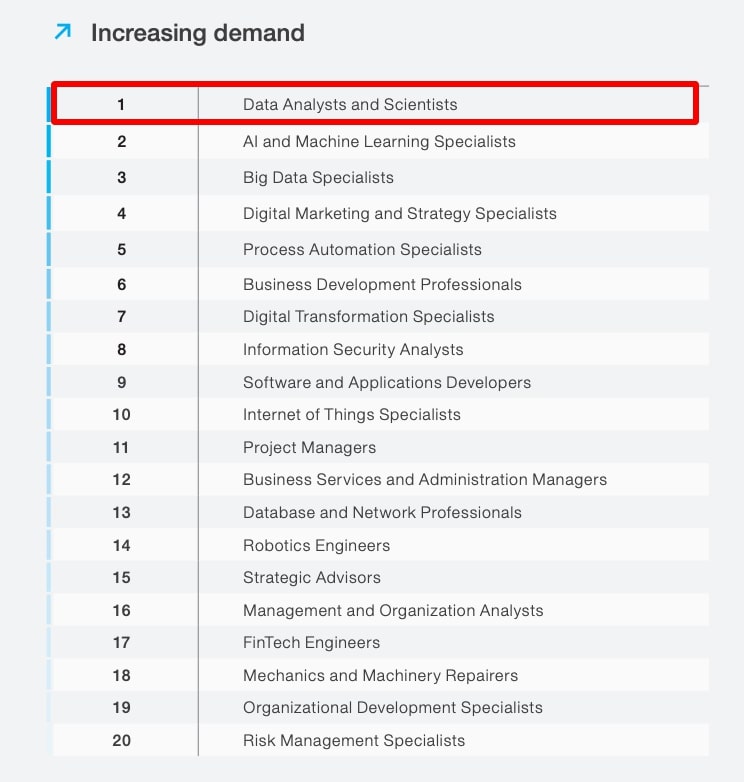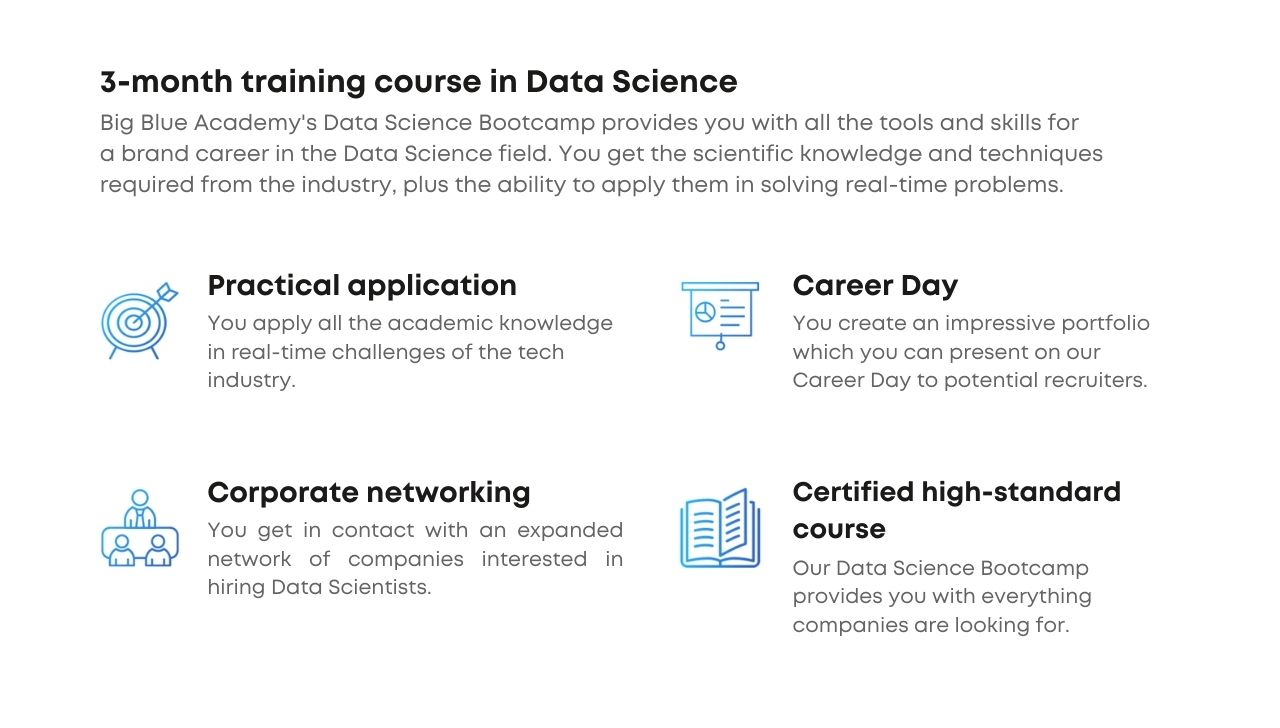Data Analyst vs Data Scientist: What are the Differences?
The world of data comes with a plethora of concepts that are often difficult to know what they all mean.
In fact, there are so many that some of them get confused with each other, resulting in confusion,
Two of these are the concepts of data analysts and data scientists.
These are two of the most useful professions, which are experiencing exponential growth in demand.
In fact, the World Economic Forum's Future of Jobs Report listed these two disciplines as #1 in terms of demand, with the others in line being those who know AI, machine learning and big data.

So while these are two very important professions, it's not always clear what a data analyst does and what a data scientist does.
What is certain is that they both work with data, but what are the elements that differentiate them?
Let's go find out.
What is a data analyst?
Data analysts collect data from various sources, organize it, and then process and analyze it.
That is, they turn data into important information for a business, with the purpose of making valuable decisions from it.
They typically use tools such as SQL, R and Python as programming languages, as well as business intelligence tools for data visualization.
In short, the main tasks of a data analyst include:
- Collecting data from primary and secondary sources
- Cleaning and organizing the data
- Analyzing data to identify patterns and other useful information
- Presenting data for decision making
In fact, a good data analyst has both technical knowledge and the ability to communicate their findings to their team in a simple way so that someone who is not familiar with them can understand them.
.jpg)
Now that we've seen some basics about the job of a data analyst, let's move on to the data scientist.
What is a data scientist?
Data scientists often tackle the "unknown" using advanced techniques to make predictions about the future, always based on the data.
They may automate machine learning algorithms, apply statistical methods and data visualization techniques to build models that make predictions and solve complex problems.
In short, they extract valuable insights from a messy mass of data.
The key tasks of a data scientist include:
- Collecting and cleaning raw data
- Designing models and algorithms
- Monitoring and analyzing data accuracy
- Creating reports for presentation
.jpg)
In addition to the above, what a good data scientist does is to have critical thinking and business empathy in order to understand not only how to process data, but also exactly where it will be useful to a company.
So we've seen a summary of what each discipline does.
In the next section, we'll go into more detail about the differences between them in order to better understand them.
Differences Between Data Analysts and Data Scientists
Although in many cases the differences may seem like fine lines, it's important to know exactly what they are so that you can follow the profession that best suits you.
Difference #1: Approach
The first difference between a data scientist and a data analyst is the fact that the former designs the ways in which data is collected, stored and analyzed.
In contrast, the latter (i.e. the data analyst), focuses on formal analyses in order to make sense of the data and present it.
Difference #2: Tools
Another important difference is the tools that everyone uses in their daily lives.
Specifically, a data scientist uses Python, Java, and machine learning in order to find ways to analyze data.
On the other hand, a data analyst uses database software, statistics programs and business intelligence tools such as Tableau and Power BI
Difference #3: Training
In terms of the education needed to become a data analyst or data scientist, both require an undergraduate degree.
For data analysts it can be something related to math, statistics, computer science, or even finance.
For data scientists, the degree may be in data science, math, statistics, or even IT.
Although these degrees are usually a prerequisite to pursue these specialties, many of the skills required can be acquired through alternative routes, such as bootcamps.
In particular, a comprehensive Data Science Bootcamp like the one we've created here at Big Blue gives you all the tools and skills for a successful career in data science.

At the bootcamp you learn a different chapter every week, which will be valuable in your professional experience!
So we looked at what a data analyst is, what a data scientist is, and some of the most basic differences between them.
Let's summarize.
Ramping Up
We hope you now have a clearer picture of the differences between a data analyst and a data scientist.
Arguably, it doesn't mean that one discipline is "better" than the other, but they do have some important differences among the many similarities they share.
The purpose of this guide was to help you see which direction is best suited for your career.
So if you'd like to delve deeper into the skills a data scientist needs, feel free to register for the next Data Science Bootcamp by clicking HERE.
We are waiting for you to discover the magical world of data!
Our team is offering 1 hour of free mentoring for anyone who needs guidance in the above areas. You can book a session HERE.


.jpg)